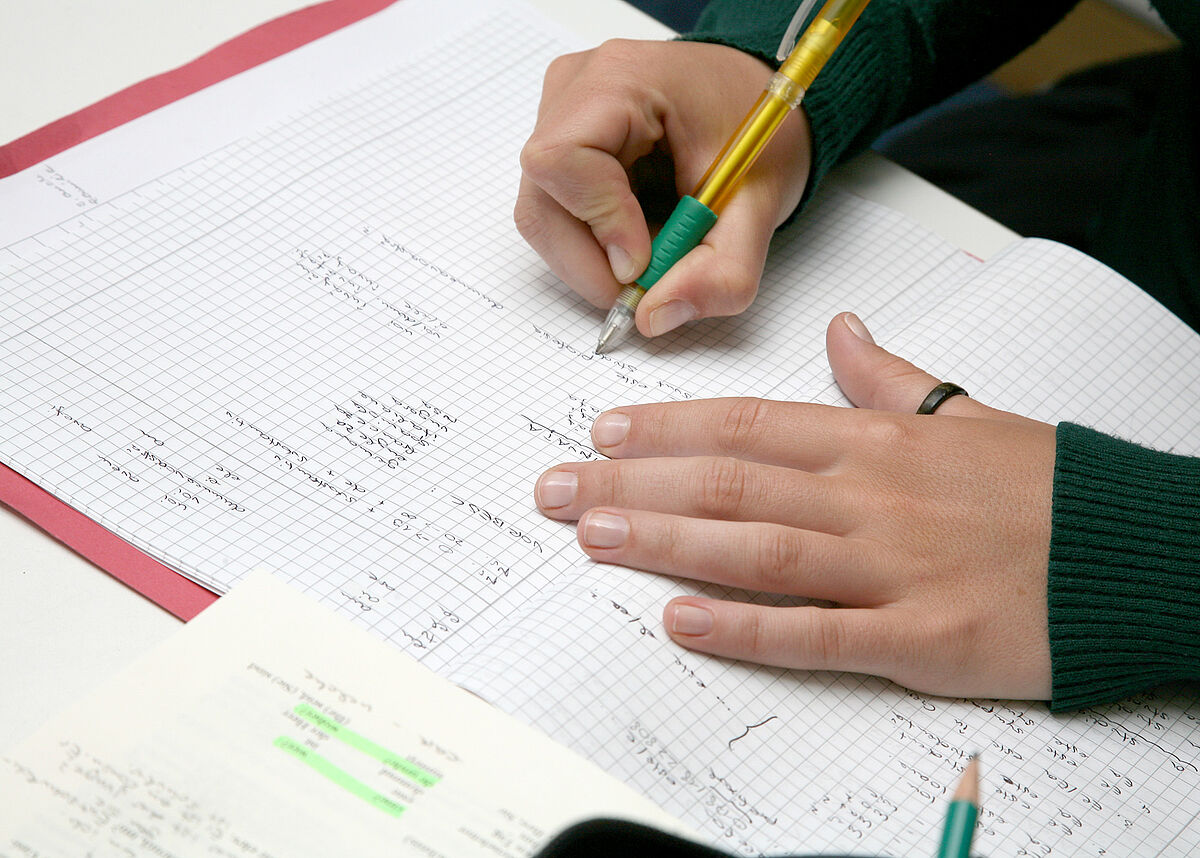Learning and teaching forms

The contents of the course are taught in various courses. The types of courses are characterised by the use of different forms of teaching and learning.
The types of courses which are used in all courses of study at the University of Rostock are described in the framework examination regulations for the Bachelor and Master courses at the University of Rostock (RPO-Ba/Ma). If the study-specific examination and study regulations (SPSO) of the study programme provide for it, further types of courses can be used.
The following types of courses are used:
Lecture / Repetitorium
In a lecture or a repetitorium, the subject matter is presented to the students primarily as a lecture by the teacher with the support of media (blackboards, slides, scripts). Lectures are free to all students at the university. Naturally, the students are encouraged to raise questions during class. Lectures or a repetitorium can be held in person or online.
Seminar
In a seminar, students are given the opportunity to present own developed findings, put them up for discussion and present them in written form. Seminars can be conducted as a face-to-face or online event.
Exercise
In an exercise that is not predominantly of a practical nature, the students work on given exercises to deepen and apply their knowledge and acquire subject-specific skills and abilities. An exercise offers the opportunity to ask questions, to discuss solutions to problems and to use means for self-control of the level of knowledge achieved. Depending on the module, tests and exercises are written in order to consolidate the knowledge learned during the lectures.
(Laboratory) Internship
In the (laboratory) internship, acquired theoretical knowledge is applied to specific practical questions. Using modern technology, exploration, mapping and experimental work in the field as well as scientific tests in the laboratory are carried out. The results obtained are evaluated and presented. Conclusions will be drawn. Usually, a internship report has to be prepared.
Internship
An internship event is an internship at the university which, in contrast to non-university internships, is conducted as a supervised course in which students usually work on their own research projects under supervision and in small groups. It is an exercise to apply acquired theoretical knowledge to specific practical questions, to practise scientific methods and working techniques through practical application and to deepen the module contents and to train one's own work organization.
Practical Seminar
A practical seminar takes place during the semester in an institution outside the university (engineering office, environmental event, etc.). Through participation in a practical project, direct experience in the professional life should be acquired.
(Large-scale) Internship
A (large-scale) internship is carried out in non-university companies or in research-related institutions and universities. The knowledge and skills acquired during the course of study are applied in practice and organisational processes and working methods are learned. The (large-scale) internship gives students the opportunity to work on a specific research approach over a longer period of time and to gain a deeper insight into scientific and economic practice.
Project Work
Implementation of scientific projects that are particularly suited to the high complexity of environmental tasks.
Project Event
In the project event, students work on a project topic on their own or in groups under the supervision of a lecturer.
Exkursion
Excursions are teaching events that take place outside university environment. These include, for example, study trips or field internships, which are carried out for technical reasons in practice-oriented locations or at external study-relevant institutions.
Consultation (to supervise scientific work)
Consultations are individual consultations between students and teachers. Students work on long-term scientific theses or Bachelor's and Master's theses. The teacher informs himself at regular intervals about the progress of the work and gives suggestions.
Tutorial
A tutorial is a course that is carried out by academic or student assistants to complement a course in accordance with the study regulations. The responsibility for the technical and didactic supervision lies with the module manager to whom the assistant is assigned.
E-Learning
Individual modules or events can be supplemented by e-learning courses and replaced if necessary. These courses enable students to work on topics and understand methods at their own speed. Through learning success controls, students can immediately check their learning success and, if necessary, repeat necessary steps.
